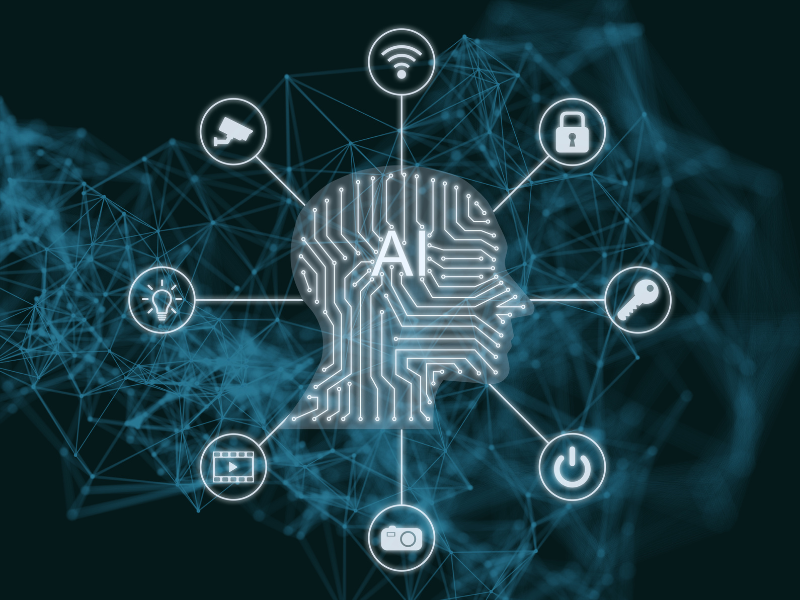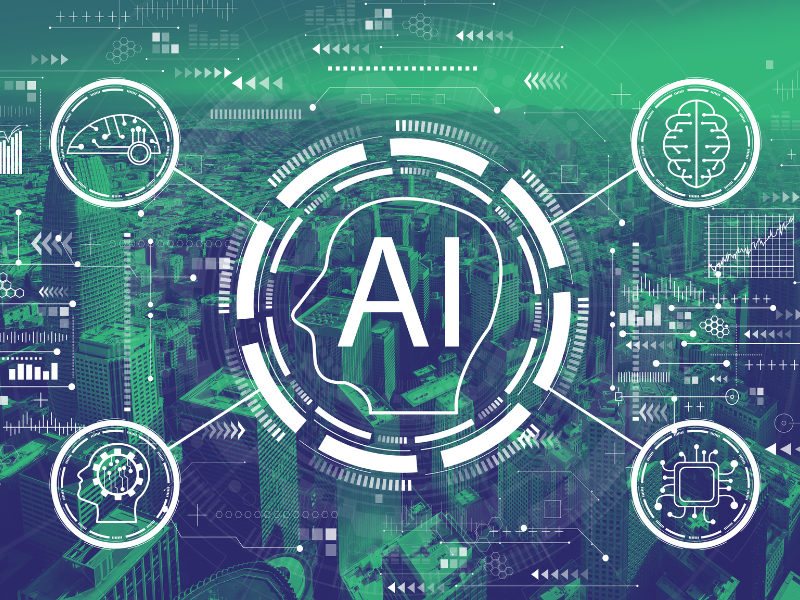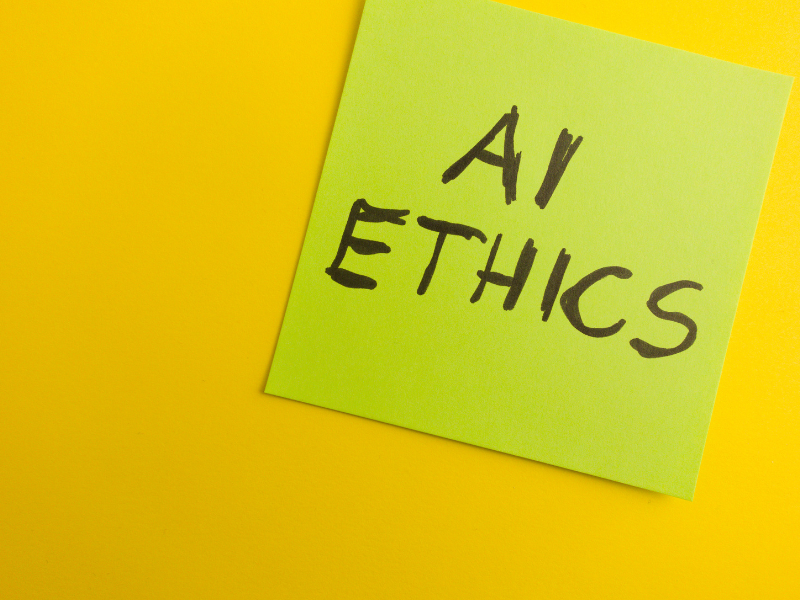Introduction
Artificial Intelligence (AI) has revolutionized various industries, enabling machines to perform intricate tasks with remarkable precision. As AI continues to evolve, concerns regarding ethics and responsible use of technology have come to the forefront. Ethical AI is an emerging concept that seeks to address these concerns, ensuring that AI systems operate in a morally sound and socially responsible manner.
In this comprehensive article, we will explore the dynamic landscape of Ethical AI and discuss the potential future scenarios that this technology might create. From its current applications to the challenges of implementing widespread ethical AI practices, we will provide insights into this exciting field.
Ethical AI: The Key to a Brighter Future

The Role of Ethics in AI Development
Ethics serves as a crucial foundation for AI development, ensuring that AI systems adhere to principles that prioritize human values and societal well-being. By integrating ethical considerations into the design and use of AI, we can foster trust, fairness, transparency, and accountability in this rapidly advancing technology.
Implementing Ethical AI: A Collaborative Approach
Creating and implementing ethical AI practices is not the responsibility of a single entity—it requires a collaborative effort from governments, organizations, researchers, and individuals. By working together, stakeholders can articulate ethical frameworks, establish guidelines, and develop transparent mechanisms for AI decision-making.
Ethical AI in Action: Transforming Industries and Society

Ethical AI in Healthcare: A Revolution in Patient Care
Ethical AI has the potential to revolutionize the healthcare industry, offering personalized and efficient patient care. From diagnosis to treatment, AI algorithms can analyze vast amounts of medical data to provide accurate diagnoses, recommend treatment plans, and even predict healthcare outcomes. However, ensuring privacy, security, and ethical data usage remain key considerations in the healthcare AI landscape.
Ethical AI in Transportation: Safer Roads and Efficient Mobility
Autonomous vehicles powered by AI are poised to redefine transportation, offering improved road safety, reduced congestion, and greater mobility. Ethical AI plays a pivotal role in addressing challenges like ethical decision-making during accidents and minimizing algorithmic biases that could impact road safety. Striking a balance between technological advancement and ethical considerations is crucial for effective integration of AI in transportation.
Ethical AI in Education: Empowering the Learners of Tomorrow
In the realm of education, AI has the potential to enhance personalized learning experiences, identify learning gaps, and streamline administrative processes. However, concerns such as data privacy, algorithmic bias in grading, and the impact of automated systems on the authenticity of education need to be thoughtfully addressed. Ethical AI frameworks can ensure inclusive and equitable access to educational opportunities.
Ethical AI in Business: Revolutionizing Operational Efficiency
AI-driven automation can optimize business operations, enhance customer experiences, and improve efficiency across various industries. However, organizations must address ethical considerations such as algorithmic fairness, accountability for AI-driven decisions, and the potential displacement of human jobs. By embedding ethical AI practices within their operations, businesses can not only reap the benefits but also contribute to a more inclusive economy.
Addressing Ethical Challenges in AI Implementation

Ethical Considerations: Data Privacy and Security
The proliferation of AI relies heavily on the availability of vast amounts of data. However, ensuring data privacy and security is of paramount importance to build trust in AI systems. Robust data protection frameworks need to be in place to safeguard personal information, prevent misuse, and promote responsible data sharing.
Fostering Algorithmic Fairness and Bias Mitigation
Algorithmic biases can inadvertently perpetuate discrimination and inequality, impacting decision-making processes in AI systems. Ethical AI requires the identification and mitigation of biases to ensure fairness and eliminate potential social harms. Transparency, diversity in AI development teams, and ongoing evaluation are vital in achieving algorithmic fairness.
Accountability and Transparency in AI Decision-Making
To gain public trust, AI algorithms and decision-making processes must be transparent and accountable. The lack of explainability in complex AI models can hinder trust and lead to concerns about biased decision-making. Ethical AI frameworks promote mechanisms for auditability, explainability, and accountability, enabling better understanding and justifying AI-driven outcomes.
Ethical Governance and Regulation
Ethical AI is propelling the need for governance and regulatory frameworks to protect individuals and mitigate risks associated with AI. Governments and regulatory bodies play a pivotal role in framing policies and guidelines that ensure ethical AI practices. Collaboration between policymakers, industry experts, and society at large is essential to strike a balance between innovation and safeguarding public interest.
FAQs: Demystifying Ethical AI
Q: What are the potential risks associated with Ethical AI implementation? A: While Ethical AI offers immense potential, risks such as privacy breaches, algorithmic biases, and socio-economic inequalities need to be addressed. Responsible development and deployment of AI systems, coupled with robust ethical frameworks, are crucial in mitigating these risks.
Q: How can Ethical AI be transparent and explainable? A: Ethical AI frameworks advocate for the development of AI models and algorithms that are explainable, enabling stakeholders to understand the decision-making process. Transparency can be achieved through auditability, documentation of AI systems, and the inclusion of diverse perspectives during development.
Q: Will Ethical AI replace human jobs? A: Ethical AI is not intended to replace human jobs but rather augment human capabilities and enhance efficiency. While some job roles may evolve or become automated, new opportunities will arise, requiring human involvement in areas such as AI oversight, decision-making, and ethical governance.
Q: How can individuals contribute to the development of Ethical AI? A: Individuals can contribute to Ethical AI by advocating for responsible AI practices, engaging in open discussions, and raising awareness about the ethical implications of AI. By actively participating in ethical debates and providing valuable insights, individuals can shape the future of AI in a socially responsible manner.
Conclusion: Embracing the Future of Ethical AI
The future of Ethical AI holds immense promise, and its responsible implementation is crucial to harness its potential for the betterment of society. By integrating ethical considerations into AI development, fostering transparency, and promoting collaboration, we can shape a future where AI operates ethically, empowers individuals, and augments human capabilities.
As we journey into an AI-driven era, let us embrace the ethical dimensions of AI, ensuring that the future we create is one that is guided by human values and societal well-being.
So, what does the future of Ethical AI look like? It holds the power to revolutionize industries, empower individuals, and shape a more inclusive and equitable society. Let’s embark on this transformative journey together.

